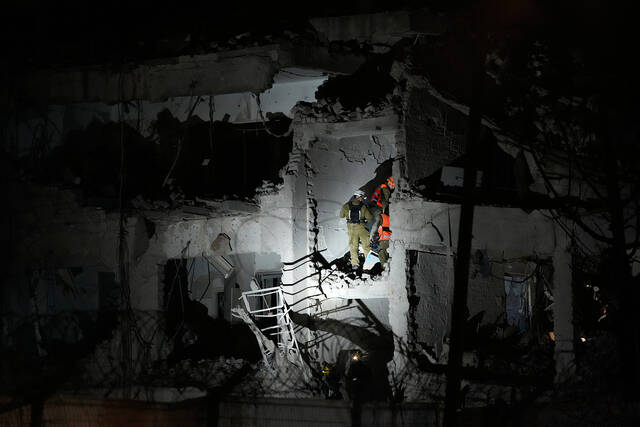Pittsburgh City Council voted Tuesday to reallocate $1 million earmarked for a new public safety training facility in Lincoln-Lemington to a project that will convert Penn Circle into a two-way street.
Two pieces of related legislation will move $808,000 from the 2019 budget and $192,000 from the 2020 budget to the Penn Circle project.
Officials said they haven’t scrapped plans to build the public safety training facility.
Director of the Office of Management and Budget Jake Pawlak assured council members that the administration intends to replenish the reallocated money in next year’s capital budget. The administration wanted to reallocate the funding now because it isn’t ready to begin work on the public safety site this year, he said.
Officials plan to build a new training facility at the 168-acre property that previously housed the Veterans Affairs Pittsburgh Healthcare System, which closed the complex in 2013.
The cash being reallocated is only a portion of what will be needed for that multiyear project. Officials had previously estimated the facility would cost more than $100 million, and Pawlak said they now expect it to cost at least $1 million beyond original estimates because of inflation and rising material costs.
Pawlak said the delay won’t impact the operational readiness of the city’s police or its ability to train. He offered no timetable on when work on the new public safety training facility might begin.
The Penn Circle project is ready to begin. With the reallocated funding, work on Penn Circle could begin within about a month, according to Pawlak.
Pittsburgh City Council has hired a California company to analyze the police force’s staffing levels and how officers are used.
The city will pay Matrix Consulting Group $180,000 to conduct the study, the first one done on the police bureau since 2005, according to Jake Pawlak, director of the city’s Office of Management and Budget.
The results will include “a set of recommendations about the number and distribution of officers in different functions and geographic locations, as well as the appropriate ratio of sworn officers to civilians in certain types of roles,” Pawlak told council members before their preliminary vote last week.
Councilman Bobby Wilson said Matrix Consulting has experience analyzing measures such as co-response, where responding officers may be joined by a social worker or another expert who is not an officer. Pittsburgh employs such measures in its policing.
Results of the study will help the city to better understand the police bureau’s staffing needs and the best ways to use its officers. It will be considered in upcoming collective bargaining with the union representing the city’s police, Pawlak said.
Officials said the study will not impact plans to create a new class of police trainees. Those decisions will focus on factors like the number of officers eligible to retire, which could dwindle the bureau’s numbers.
City Council voted 8-0 on Tuesday to authorize the study. Councilman Corey O’Connor was not present.








